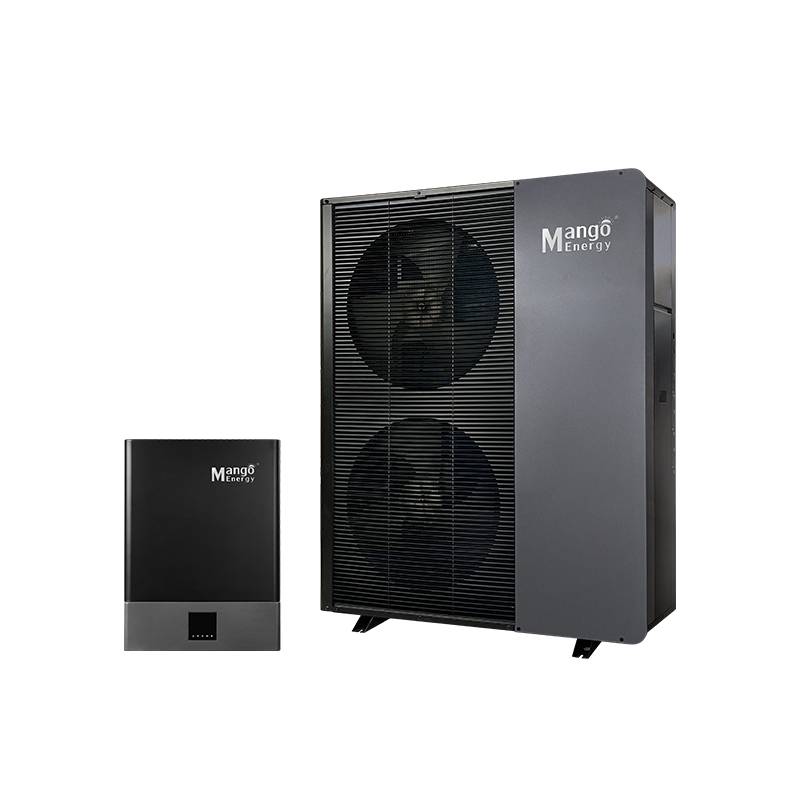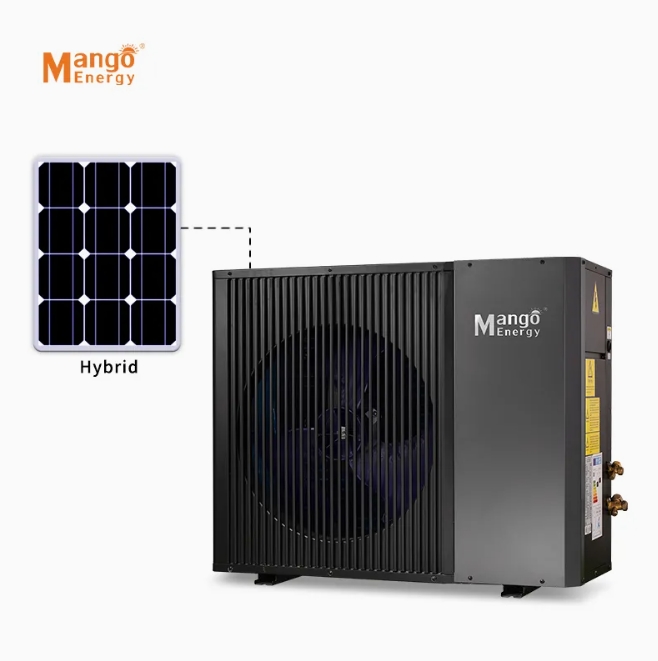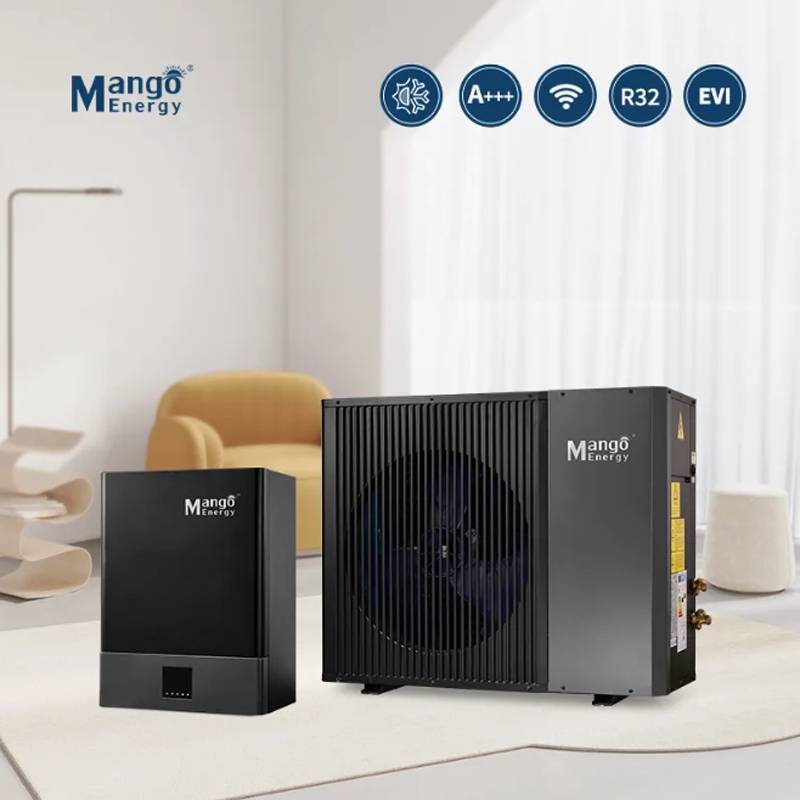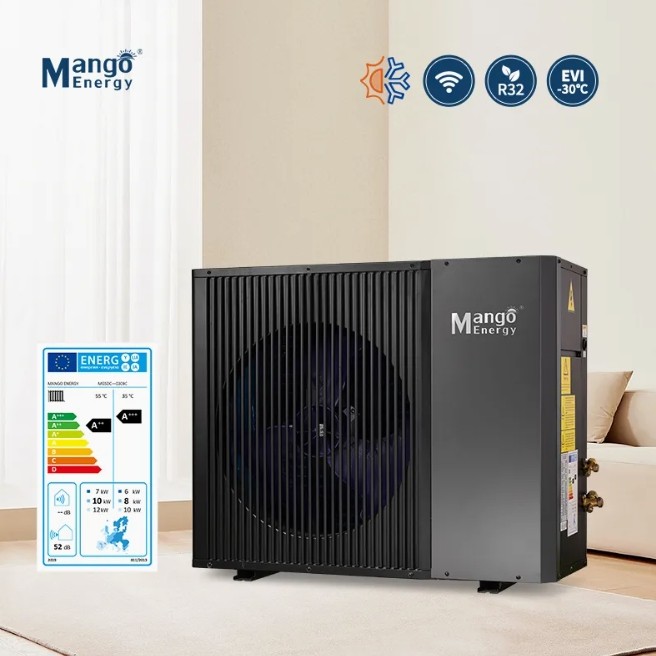
As the demand for energy-efficient and eco-friendly heating solutions continues to rise, more homeowners and businesses are turning to air to water heat pumps. Among the available options, DC inverter heat pumps have gained popularity for their advanced technology and energy-saving performance. But how do they really compare to non-inverter heat pumps? In this article, we’ll break down the key differences between these two systems and help you decide which is best for your needs.
Understanding the Basics: What Is a Heat Pump?
Before diving into the comparison, let’s clarify what a heat pump is. A heat pump is a device that transfers heat from one place to another. In the case of air to water heat pumps, the system extracts heat from the ambient air and transfers it to water, which is then used for space heating, underfloor heating, or domestic hot water. Heat pumps are known for their high energy efficiency and are a core component of sustainable HVAC systems. They are especially relevant in regions aiming to reduce carbon emissions and reliance on fossil fuels.

What Is a Non-Inverter Heat Pump?
A non-inverter heat pump operates at a fixed speed. Once turned on, the compressor runs at full capacity until the set temperature is reached, then it switches off. When the temperature drops, the system restarts and continues the cycle.
Key Characteristics:
Fixed-speed compressor
On/Off operation
Higher energy consumption
Less precise temperature control
Lower upfront cost
While non-inverter systems are simpler in design and cost less initially, they are less efficient in the long run due to frequent stops and starts. This on-off cycling leads to more wear and tear on the compressor and contributes to fluctuating indoor temperatures.

What Is a DC Inverter Heat Pump?
A DC inverter heat pump, such as those offered by Mango Energy, uses a variable-speed compressor powered by direct current (DC). Instead of stopping and starting, the compressor adjusts its speed continuously to maintain the desired temperature.
Key Characteristics:
Variable-speed DC compressor
Smooth and continuous operation
Up to 30–50% more energy-efficient
Quieter performance
Longer lifespan
Higher initial investment but faster payback
DC inverter technology allows the heat pump to match the heating or cooling demand precisely, leading to less energy waste and more stable indoor comfort.

DC Inverter vs. Non-Inverter: Head-to-Head Comparison
| Feature | DC Inverter Heat Pump | Non-Inverter Heat Pump |
|---|---|---|
| Compressor Type | Variable speed (DC) | Fixed speed |
| Energy Efficiency | High | Moderate to low |
| Temperature Stability | Excellent | Fluctuating |
| Noise Level | Low | Higher |
| Lifespan | Longer (due to reduced strain) | Shorter (due to frequent cycling) |
| Initial Cost | Higher | Lower |
| Operating Cost | Lower in the long run | Higher over time |
| Best For | Homes looking for long-term savings | Budget-conscious installations with limited usage |
Why Choose a DC Inverter Heat Pump from Mango Energy?
Mango Energy specializes in DC inverter air to water heat pumps that are designed to deliver top-tier performance, even in challenging climates. Our systems feature smart controllers, high COP ratings, and intelligent defrosting mechanisms to ensure optimal operation all year round.
Advantages of Mango Energy DC Inverter Heat Pumps:
Wide operating temperature range, making them ideal for both hot and cold regions.
Smart frequency control to optimize compressor speed and energy use.
Advanced noise reduction technology for ultra-quiet operation.
Eco-friendly refrigerants like R32 and R410A for reduced environmental impact.
Modular design options for residential and light commercial use.
Whether you’re upgrading your existing heating system or building a new energy-efficient home, Mango Energy’s DC inverter heat pumps provide a smart and sustainable solution.

Environmental Impact
Using a DC inverter air to water heat pump significantly reduces carbon emissions. By using ambient air as the heat source and consuming less electricity, these systems contribute to a lower carbon footprint and support global decarbonization goals. Mango Energy is committed to sustainable technology. Our heat pumps comply with international energy efficiency standards such as ERP A+++, making them a green choice for eco-conscious consumers.
Is a DC Inverter Heat Pump Right for You?
Consider the following when deciding between a DC inverter and a non-inverter model:
Do you use your heating system frequently throughout the year?
If yes, a DC inverter model will offer better efficiency and savings.Is your region subject to extreme temperature variations?
DC inverter systems handle fluctuating temperatures more effectively.Are you planning a long-term investment in your property?
The higher initial cost of an inverter system pays off over time.
If your answer to any of the above is “yes,” then a Mango Energy DC inverter heat pump is the clear choice.
Final Thoughts:
The difference between a DC inverter and non-inverter heat pump boils down to efficiency, comfort, and long-term value. While non-inverter models may have a lower upfront price, the energy savings, performance consistency, and durability of DC inverter heat pumps make them a smarter investment—especially when you choose a trusted brand like Mango Energy.
Explore our full range of high-efficiency air to water heat pumps today and experience the future of heating and cooling with Mango Energy.


